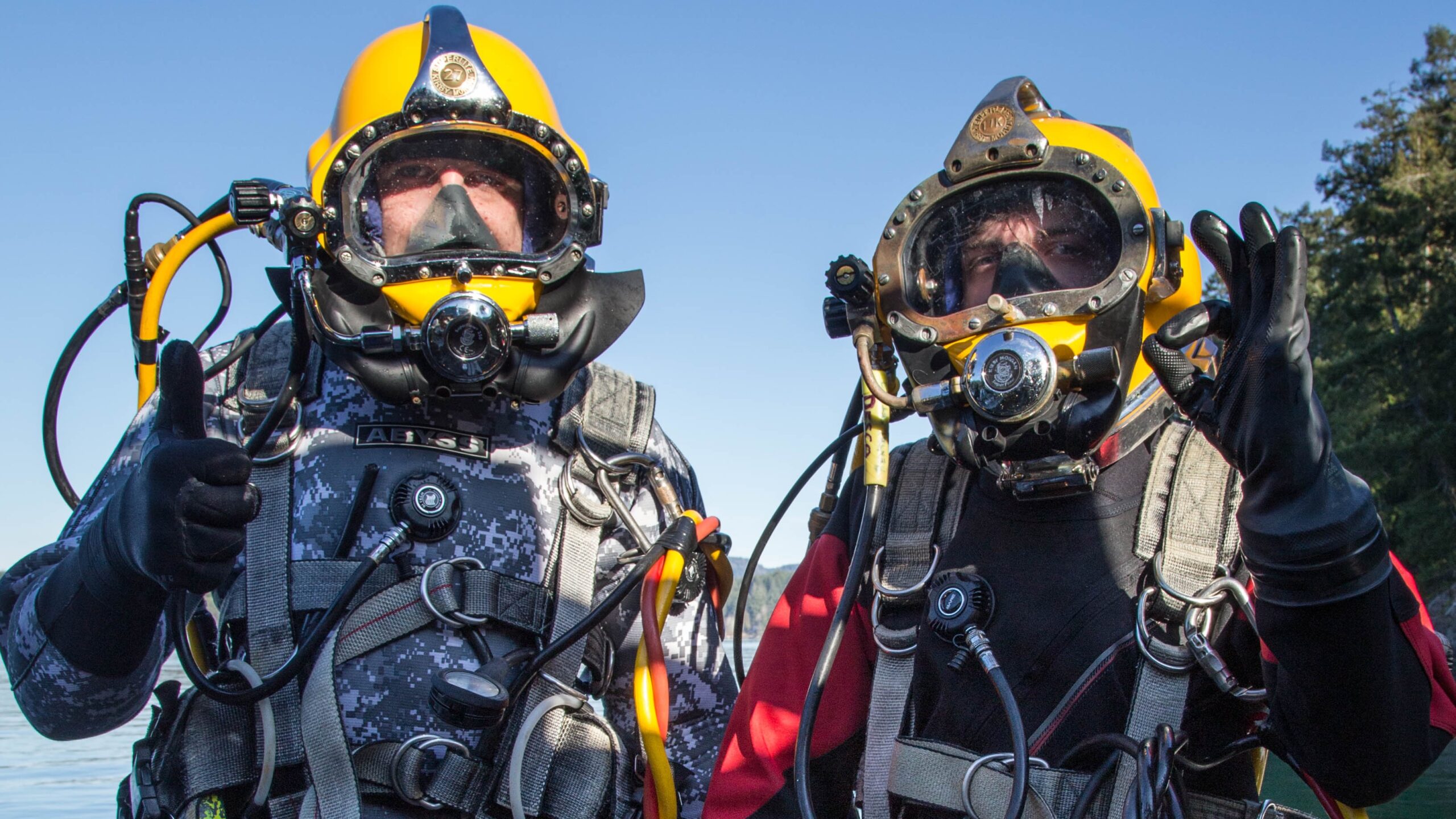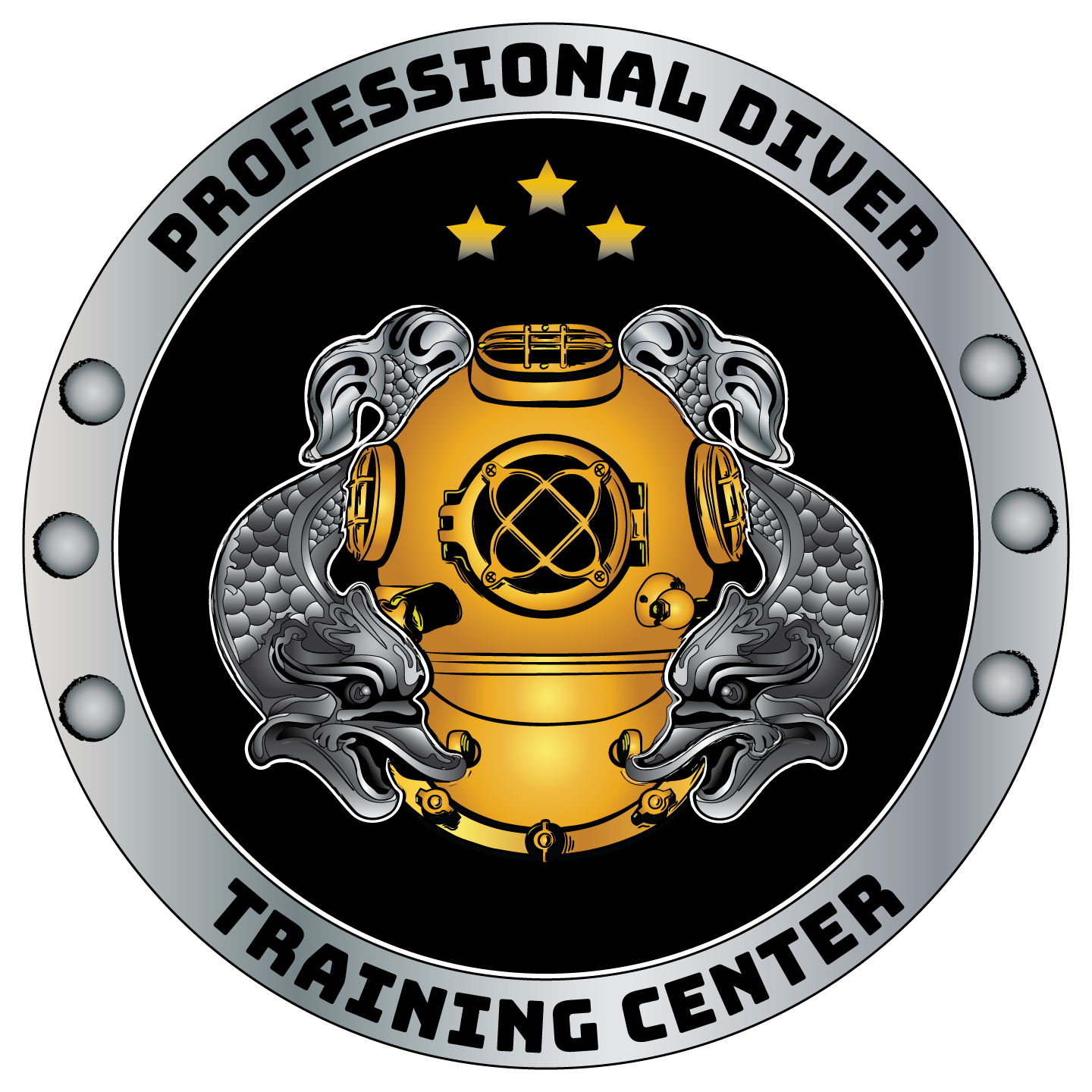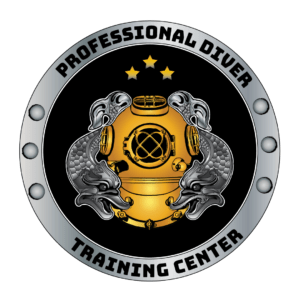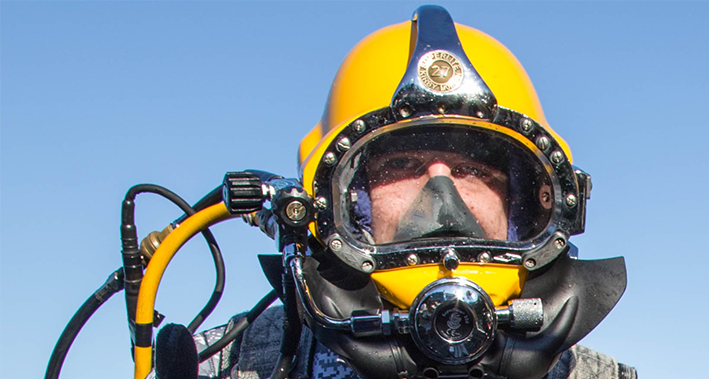Top 10 Tips for Commercial Divers


Written by PDTC
With so much growth happening in the industry, it’s no wonder that the interest in becoming a commercial diver is increasing exponentially. With all this interest, many people want to know how they can stand out from the crowd and make a long-term career out of commercial diving. We’ve partnered with Commercial Diving FAQ to bring you a top 10 list of the most important tips to be successful in this fast-paced and exciting career field.
- You Cannot Be Claustrophobic or Afraid of Isolation in Cold, Dark, Wet Spaces.
As you will be underwater for long periods of time either by yourself or with one or two other dive team members, this is a key ingredient to success in the industry. If you can’t handle that type of environment, commercial diving might not be right for you. Commercial Divers who are successful in this industry are the ones who overcome their psychological boundaries and can put themselves in uncomfortable positions. Anyone with an interest in becoming a commercial diver needs to assess their level of claustrophobia before they decide to take on this career path. Those who may not like these types of spaces may eventually overcome this psychological discomfort with practice. It takes putting yourself in uncomfortable positions over and over again for a long period before you actually start enjoying it.
- You Must Have Situational Awareness.
Successful commercial divers need to be able to build a mental picture of their surroundings. Often, your field of vision, depth perception, and lighting are limited. Understanding for instance, where you’ve come, where you’re currently facing, where the crane is coming from, the location of the tool basket will affect your ability to successfully complete tasks in the water and contribute to your safety.
- You Must Have Common Sense.
The funny thing about common sense is, it’s not always that common. Usually, common sense is gained from on-the-job experience but a lot of people naturally have it while others don’t. Now it’s important to know that whenever you’re doing a task it needs to be thought out properly and you need to have contingency plans for what exactly is going on and have action plans for several different scenarios. Always be able to find your escape route and understand the job completely before you undertake it. In the simplest terms, just take the time to think about what you’re doing
- You Must Be Proactive
Always be the first person willing to get their hands dirty. Approach everything with a can-do attitude, have your tools ready to go, and make sure you’re dressed in your dive gear and ready to jump in before even being asked. It’s just professional.
- Be Attentive to Every Aspect of the Job
Commercial Diving is no different than any other industry: knowledge is power. Make sure you’re involved in the setup, the discussions, and everything that happens with anything that’s going on. You need to be focused and have your mind on the job. When you’re on board you build a reputation and it’s up to you what that reputation becomes. If you’re attentive, proactive, and always ready to get in the water, you’re going to be asked to come back for the next job. It really is that simple.
- Safety, Safety, Safety, Safety.
Safety must be on your mind at all times. Think safety in every corner and in dealing with any and every aspect of the job. Unfortunately, there are still a lot of employers and divers out there cutting corners. Thankfully, the industry is slowly moving towards a more safety-focused culture but ultimately, it’s up to you to look after number one. Make sure that you go home with all your fingers and toes, look after your crew and be sure to question everything. If it’s against best practices and is unsafe, don’t do it.
- Respect People’s Personal Space.
Offshore commercial divers work on barges, sharing rooms or set chambers with two, three, four other guys at a time. Being on top of personal hygiene is paramount when you’re sharing a small space with other people. Cleaning up your hair in the sink after shaving, tidying your bag away so that no one trips over it in, and clean up in the galley after you’ve finished eating. You also need to respect other people’s sleeping patterns. Some divers are on opposite shifts or just need to get their heads down early. Even if you’re a night owl, tiptoe around them, don’t make too much noise, and don’t turn the lights on. It’s about putting other people’s comfort in front of your own for the sake of the team.
- Be Friendly.
Being friendly creates a strong team bond and that team bond is extremely valuable offshore. You don’t have to be friends with everybody, but you do need to build an element of camaraderie. These are the people that are going to be rescuing you or your support crew if things go wrong, so it’s important that you’re all on the same level. The better you get along with the crew, the more efficient your team will be. And the best thing about being friendly is you’ll make some good friends along the way.
- Have A Clear and Focused Mind.
Commercial Diving is a high-risk activity. It’s important that commercial divers maintain 100% focus. This industry requires traveling for a living taking you away for months at a time. If you’ve got issues going on in the background that takes your mind off of what you’re supposed to be doing, it can affect the safety of yourself and your crew. Communication can be difficult when you’re working offshore or when you’re working in isolated places, but it’s important to make every effort possible to touch base with your loved ones to let them know you’re okay. This translates to a clearer headspace and ultimately, a better ability to focus on the task at hand.
- Stay Fit and Healthy.
If you’ve ever tried to complete a task but don’t have the right tool for the job, it can be near, if not entirely impossible. Commercial Diver’s bodies are probably their most important tool other than their brains. If you’re swimming mid-water and carrying heavy tools to a job, it might be 100 meters away. If you’re finning, finning, and finning against the tide all while pulling your umbilical along. In this situation, your fitness might be the key ingredient to either completing the journey successfully or getting yourself into some serious trouble. Being out of breath in a dive helmet is the equivalent of slowly suffocating and nobody wants that.
These ten tips are critical to your continued success in the commercial diving industry. If you pay close attention and absorb these concepts, you’ll be equipped with knowledge and ideas typically only industry pros have under their belts. We want to thank Commercial Diving FAQ for partnering with us to bring this list to you. Check out their YouTube, Facebook, Instagram, and Twitter for more great content.
Related Articles
Related
Underwater Welding Equipment: Commercial Diving Tools Part Two
If you read part one of our underwater power tools series, you may have noticed one important tool set missing from the list: Underwater Welding Equipment. These are one of the most utilized sets of equipment in commercial diving and deserve an introduction all their...
Commercial Diving Tools: Part One
You’re interested in becoming a commercial diver. You’ve already read up on the basic equipment you’ll be using like helmets, wetsuits, gloves, and boots, but what about the bigger, heavier equipment like power tools? It might surprise you to learn that there are...
Business is Booming: The Growth of the Commercial Diving Industry
If you’ve recently been finding yourself more interested in becoming a commercial diver, you’re not alone. Becoming a commercial diver may only require a comparatively short period of education, but there are a wide variety of occupations this certification opens...
Follow Us
Subscribe For Updates & Offers
GET THE LATEST NEWS AND UPDATES ABOUT PRO DIVER TRAINING CENTER. PLUS WE’LL KEEP YOU INFORMED ON ALL THE LATEST TRENDS, TOOLS, AND TECH HAPPENING IN THE COMMERCIAL DIVING INDUSTRY.


